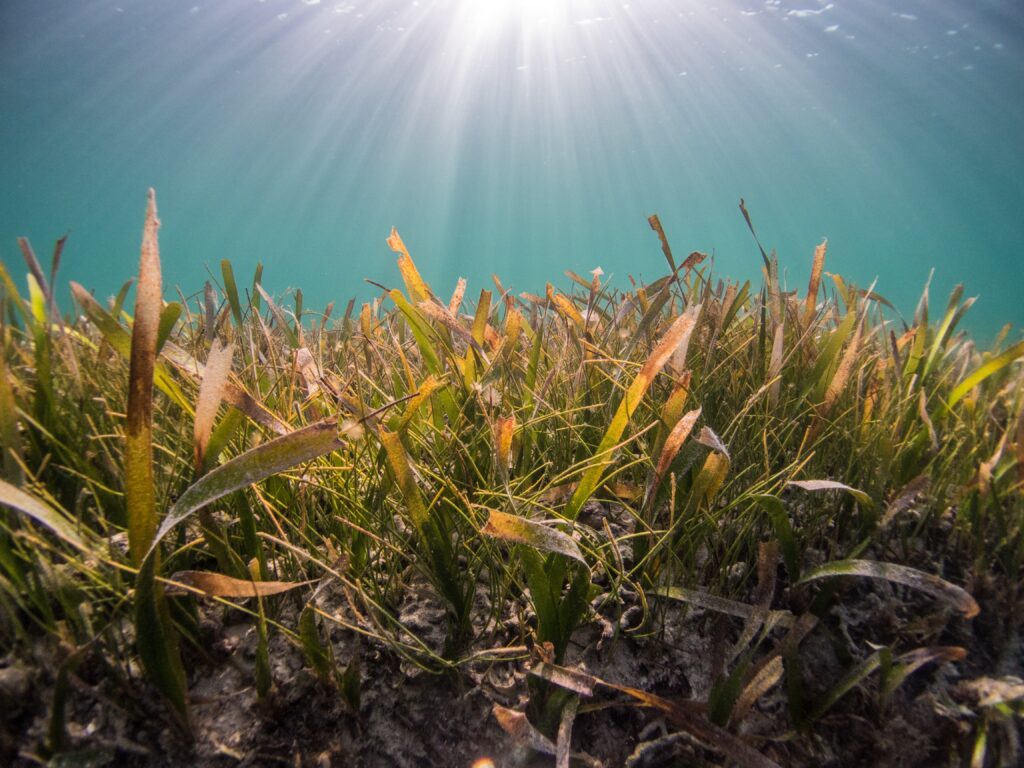Tree planting dos and don’ts, and other ideas for small business owners who take their environmental responsibility seriously.
Before we get started, please note that nothing that I’m about to present here negates the need to also reduce consumption and waste. Unless we do that, it really doesn’t matter how many trees we plant or sea grass pods we sponsor. Recycling is good, like making your bed, and we should all do it. But in terms of cutting the emissions driving the climate crisis, it’s tiny compared to, say, avoiding fast fashion (responsible for 10% of global emissions). And while we as individuals or small businesses won’t solve the crisis, if some of us or most of us do, then good things can happen.
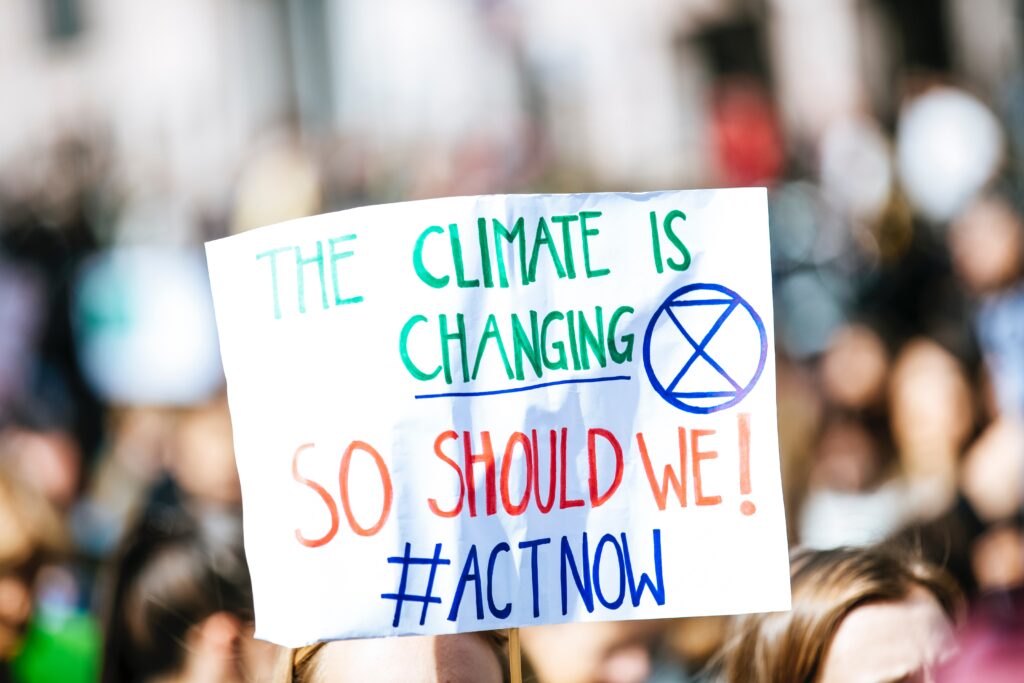
Eight Ways to Fight the Climate Crisis as a Small Business Owner in the UK
As a small business owner working in partnership with nature in woodland in and around Winchester, Hampshire, people often ask me whether tree planting schemes are a good idea. There’s so much to unpick that part 1 of this blog focuses solely on that. Read the full blog here or brief synopsis here:
1. Planting Trees to fight the climate crisis
While tree planting seems to be the ‘go-to’ way for organisations and individuals to do something to help the biodiversity and climate emergency, the companies, projects and programmes aren’t always what they seem. I can’t stress enough the need to thoroughly research options before you commit.
There is also the not-insignificant fact that we don’t have enough land on Earth for all the trees needed. Not to mention that trees only reach optimum levels of carbon capture and storage at 20 years. And we certainly haven’t got 20 years to play around with…
A decent tree-planting scheme is great though, and it’s good to shout about the reputable ones that tackle social injustice, maximise biodiversity and protect existing ancient trees in the process. These include One Tree Planted, Tree Nation and TreeSisters.
What are the effective alternatives to planting trees?
2. Elephant Grass

Elephant Grass is the common name for Miscanthus x Giganteus, which is a sterile hybrid of Miscanthus Sinensis and Miscanthus Sacchariflorus. Yes, it’s still a land-based solution, but Elephant Grass contributes positively to the carbon sink from year two (carbon is stored in the soil and cane). And this process appears to last for more than 20 years without the need to re-plant. So using land for elephant grass would give sufficient returns in the very short term to make it worthwhile.
Check out Carbon Trap here.
3. Coastal Blue Carbon to fight the climate crisis
Coastal ecosystems such as seagrasses, mangroves, coral reefs, seaweeds, and salt marshes play their part. Current studies show that these carbon sinks sequester carbon annually at a rate ten times greater than mature tropical forests. They also store three to five times more carbon per equivalent area than tropical forests. Most coastal blue carbon is stored in the soil, not in above-ground plant materials as in tropical forests.
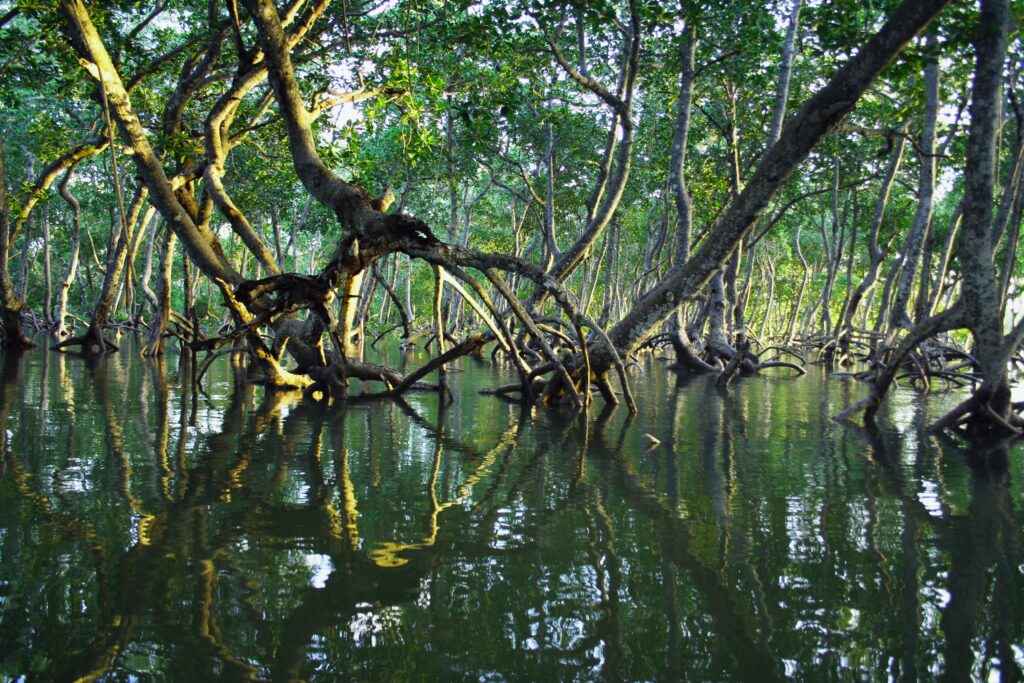
If these carbon sinks are damaged or destroyed, it is not only their carbon capture capacity that is lost. Their large stores of carbon accumulated over hundreds to thousands of years can also be released into the atmosphere. And it goes without saying, that they are being lost at a rapid rate due to coastal development.
Solent Seagrass
One of the blue carbon capture schemes near me in the UK is the Solent Seagrass Restoration Project run by The Wildlife Trust. Seagrass is a globally threatened habitat recognised as one of the most important habitats on Earth. The underwater meadows are home to some amazing wildlife and store huge amounts of carbon. In the Solent, these biodiversity hotspots are home to cuttlefish, crab and even woohoo, seahorses (they had me at seahorses!).
Globally, it’s estimated that we lose an area of seagrass the size of two football pitches every hour, while in the UK, it is estimated that we have already lost up to 92% of its seagrass over the past century. My son and I often explore the Solent beaches (so much more interesting than a pure sandy equivalent imo), so investing in seagrass pods felt right to me. You can sponsor a pod yourself, or gift one to someone else (they receive a thank you card through the post which is a nice touch). I gift all my Forest Bathing Guide Training programme students a pod and wouldn’t it make a great birthday present for an environmentally-conscious friend?
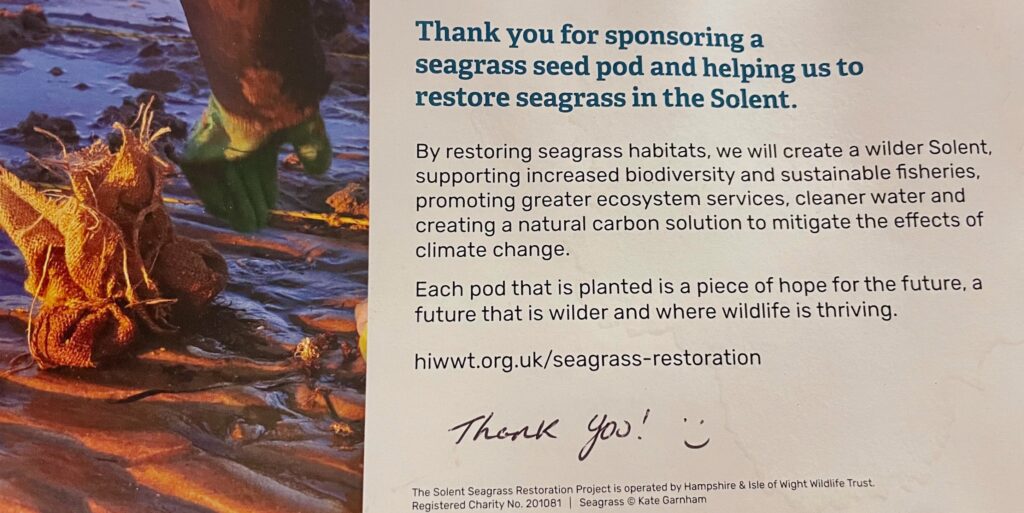
4. Memberships to environmental charities
You could take out (or gift) memberships to environmental charities such as The Wildlife Trust, Surfers Against Sewage, The Woodland Trust or The Soil Association. You could do this for yourself but I also like the idea of gifting a membership. The Hampshire and Isle of Wight Wildlife Trust membership starts from £3.50 a month for individuals and increases to £4.50 a month for a family membership, with includes membership to Wildlife Watch for up to four kids. Your money goes towards protecting the wildlife and wild places on your doorstep so it’s a no-brainer to me. The Woodland Trust is slightly more expensive (£4 and £5) with the kids receiving Nature Detective membership and seasonal activity packs four times a year.

5. Volunteer your time or become an activist
Ideas include doing beach cleans, helping out in a community garden, joining your local climate action group, fundraising for your chosen cause and leading nature walks. You could join Chris Packham on People’s Walk for Wildlife (the next one scheduled for spring 2023 in London) but remember, the Government has removed our right to explain ourselves in court when charged with public nuisance.
You could involve the whole team and take part in citizen science projects like The Wildlife Trust intertidal surveys (absolutely incredible – read this blog for more info) or encourage everyone you know to take part in the RSPB Great British Bird Watch is proven to result in sustained increased connection to nature and pro-nature behaviour (a fantastic way to fight the climate crisis). How about sponsoring an event or encouraging your staff to choose a worthwhile cause they want to champion and support them with paid volunteer days? Hampshire Wildlife Trust is always looking for seagrass champions.
6. Invest in a green pension to fight the climate crisis
UK pension funds are worth approximately £3tn with this huge wealth invested in assets all over the world. If you are eager to reduce your carbon footprint, making your pension “green” is 21 times more effective than giving up flying, becoming a vegetarian and changing an energy provider combined, according to the campaign group Make My Money Matter.
So how can you make your pension better for the planet? According to Morningstar, across six different categories of funds and over a five-year period, sustainable funds consistently outperformed their standard counterparts by between 0.54 and 1.91%. You can make the switch yourself and switch your workplace pension policy to green pensions too.

7. Become a BCorporation
You can look into joining 6000 other businesses and becoming a BCorporation, or BCorp. To do this you must meet high standards of social and environmental performance, transparency and accountability and work towards their desired outcome – redefining the role of business so that all businesses are a force for good and play a leading role in positively impacting and transforming the global economy toward a more inclusive, equitable, and regenerative system. Sounds good, right? There’s a robust process in place to get certified and you need to renew every three years. It is possible to certify as a sole trader but it might be overkill, so I’ll be investigating this more thoroughly.
8. Donate a percentage of profits/sales
Organisations looking to make a positive impact on the environment can also donate a percentage of their sales/profits. There are various ways of doing it including making a manual donation at year-end but if you’d prefer to systemise your donation you could try Work for Good. Always check the commission though as it takes 5% of your donation. 1% for the Planet is another option, and it was founded to prevent greenwashing, certify reputable giving and provide accountability. There are also online donation services that collect optional donations at checkout so that the customers’ contribution is allocated to preselected charities of your choice. Adore Your Outdoors gives 1% of our profits to Hampshire Wildlife Trust for their seagrass project.
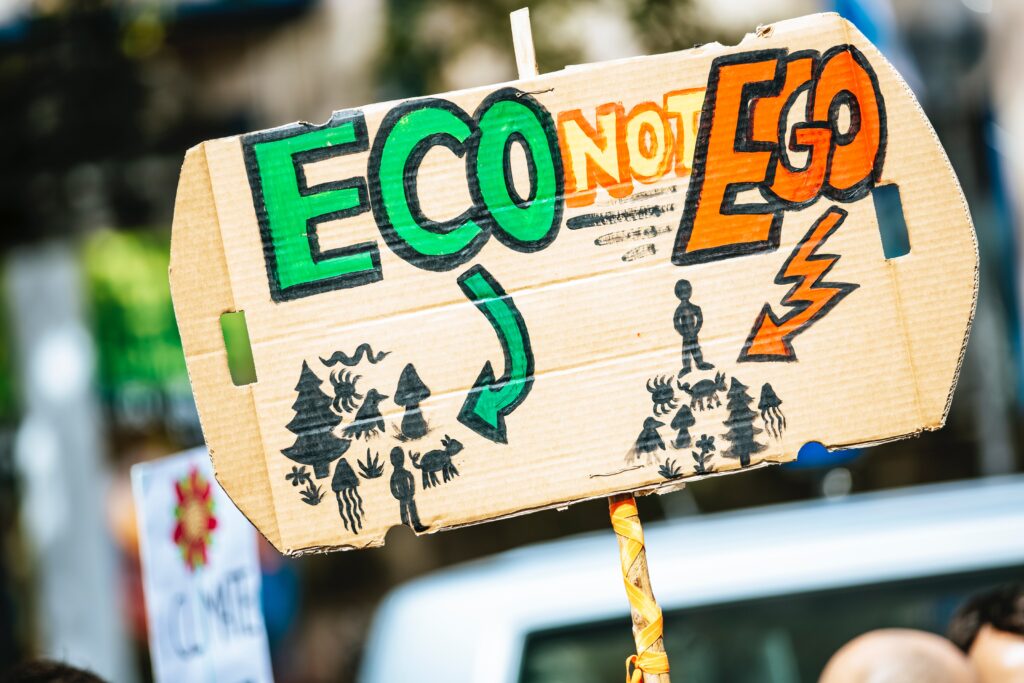
However you choose to fight the climate crisis, make sure you shout about it!
Whatever you decide as a small business owner make sure you document how you handle your social and environmental responsibility in your environmental policy, and feature it on your website and in your other marketing materials. Evidence shows Gen Z consumers are willing to pay more for brands that try to have a positive impact on society (56%) or run their business in a sustainable way (53%).
Many individuals and small business owners are still unaware of most of these developments, and so by sharing your discoveries and experiences, you will likely also be influencing others to take action themselves.
If you missed part 1 of this blog which focuses solely on tree planting, have a read here.
About Sonya Dibbin and Adore Your Outdoors

Helping others reconnect with the natural world is proven to result in more pro-nature and pro-environment behaviours and in turn a more sustainable future on Earth.
Never before have we so desperately needed leaders who are ready to take practical steps to protect the natural world. I run workshops on how to incorporate Nature Connection and Forest Bathing into your life and business, and whilst navigating your personal growth journey, you’ll also discover groundbreaking, science-backed tools and techniques that drive changes in thoughts, beliefs and behaviours, leading to real change. I’ll also explain the options to work with me in the future including franchising.
This is for you if you worry about the climate emergency and your children’s future in it, feel lonely without really understanding why or you’re disillusioned with your existing service portfolio. There is no time like the present to grab life with both hands and take action. Find out more.
